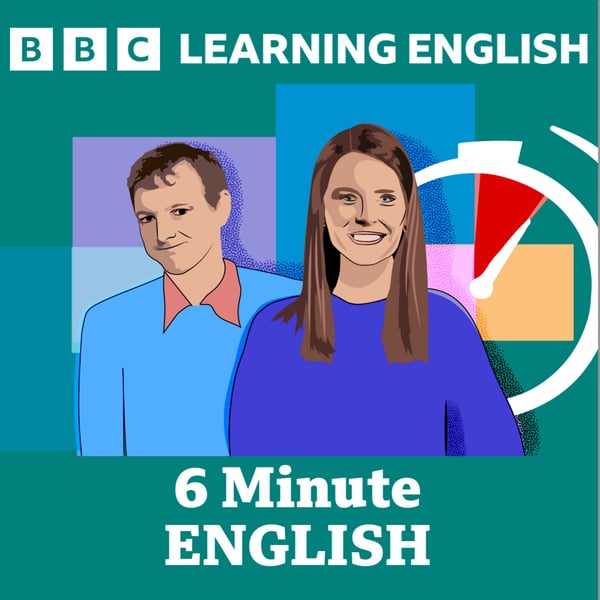The Manhattan Project
6 Minute English
BBC
4.6 • 1.3K Ratings
🗓️ 23 June 2022
⏱️ 6 minutes
🧾️ Download transcript
Summary
Transcript
Click on a timestamp to play from that location
| 0:00.0 | This is a download from BBC Learning English. To find out more, visit our website. |
| 0:15.3 | Hello, this is 6 Minute English from BBC Learning English, I'm Sam. |
| 0:19.4 | And hello, I'm Rob. |
| 0:20.9 | On August the 6th, 1945, the US Aircraft Enola Gay dropped an atomic bomb on the City of Hiroshima. |
| 0:29.3 | Instantly killing 70,000 people. When Japan refused to surrender, a second bomb was dropped |
| 0:35.8 | on Nagasaki three days later. Many believe the bombings quickened the end of the Second World War, |
| 0:42.4 | but it came as a terrible human cost, which some have called a crime against humanity. |
| 0:48.2 | The invention of the atomic bomb, which resulted from the cooperation between the US military |
| 0:53.6 | and some of the world's leading scientific minds, was known as the Manhattan Project. |
| 0:59.1 | In this programme, we'll take a look into the science and the politics of the Manhattan |
| 1:03.2 | Project, and as usual, we'll learn some new vocabulary as well. |
| 1:07.6 | Even before World War II, scientists had known about the potential energy inside Uranium, |
| 1:14.0 | the heaviest metal in the periodic table, a diagram which groups the chemical elements |
| 1:19.3 | into rows and columns, according to their atomic number and symbol. |
| 1:24.5 | The challenge for science was learning how to unleash this potential energy in a controlled way. |
| 1:31.3 | We'll hear more soon, but first I have a question for you Rob. |
| 1:35.2 | I mentioned that Uranium is the heaviest element in the periodic table, |
| 1:39.9 | but which is the lightest? Is it a hydrogen, be carbon or sea oxygen? |
| 1:49.0 | Well, oxygen is a gas, so it must be pretty light, so I'll say sea oxygen. |
| 1:55.4 | Okay, Rob will find out the answer later in the programme. First, let's find out a bit more |
| 2:01.1 | about the science of Uranium from Frank Close, an Oxford professor of theoretical physics |
| 2:07.5 | in conversation with BBC Radio 4 programme in our time. |
... |
Please login to see the full transcript.
Disclaimer: The podcast and artwork embedded on this page are from BBC, and are the property of its owner and not affiliated with or endorsed by Tapesearch.
Generated transcripts are the property of BBC and are distributed freely under the Fair Use doctrine. Transcripts generated by Tapesearch are not guaranteed to be accurate.
Copyright © Tapesearch 2025.

